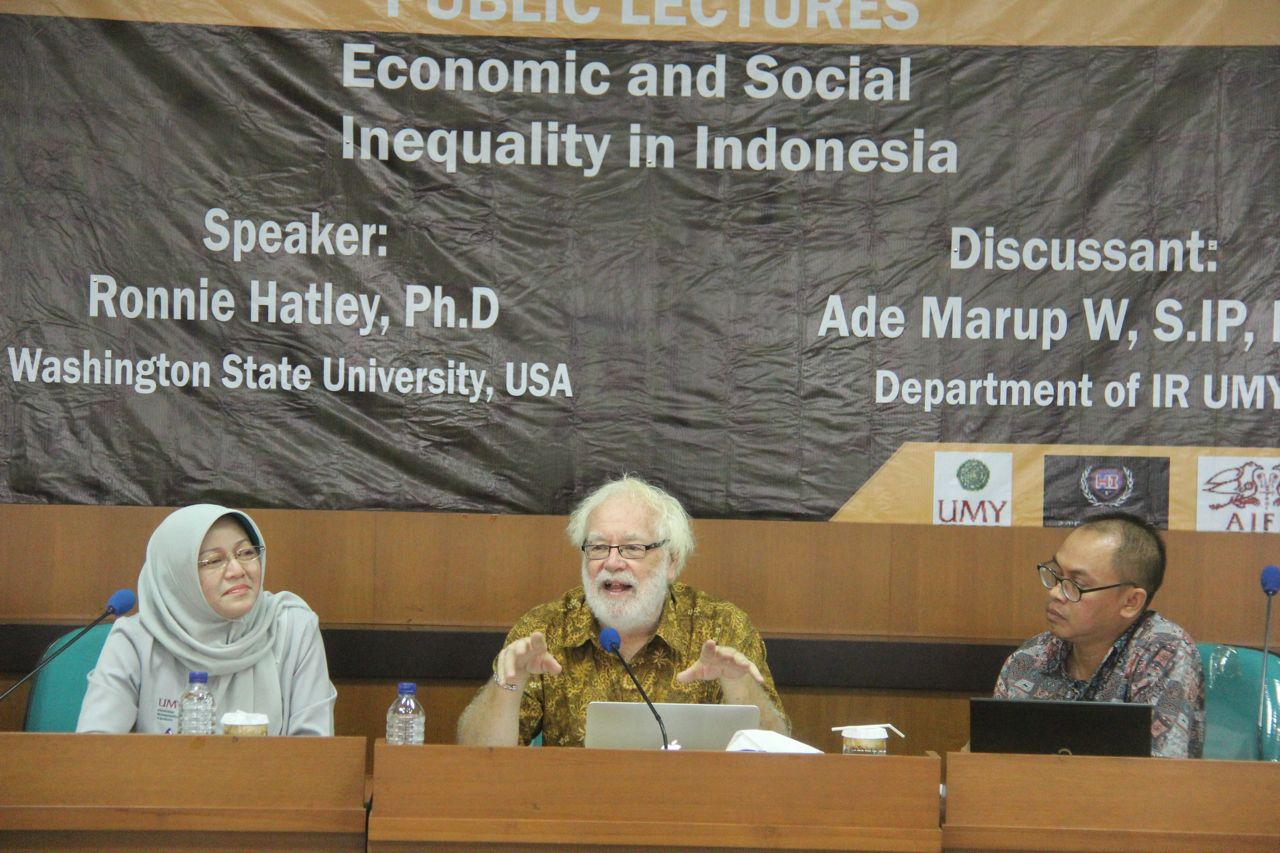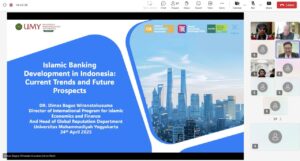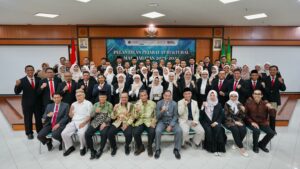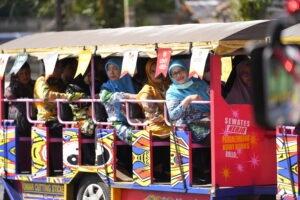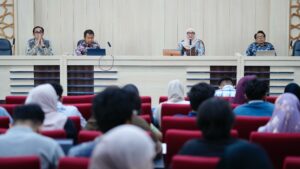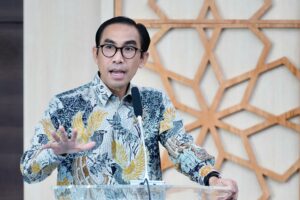The reform of Indonesia can be noticed the massive economic structure change like the emergence of Indonesian and foreign private companies. It leads to the decreasing of the governmental subsidy to public which may later cause social inequality.
In a public lecture ‘Economic and Social Inequality in Indonesia’ on Thursday (18/2) at meeting hall of A.R. Fachruddin A, Ronnie Hatley, Ph.D., a political science lecturer of Washington State University stated, “20 years ago, government of Indonesia provided budgets of Community Health Center (Puskesmas) However, nowadays the number of huge pharmacy companies and health industries escalates, but the subsidy to the Puskesmas was abolished.”
He argued that, when the massive private health companies emerge, government of Indonesia considers that public is able to access private company facilities, but the fact is that a lot of people still come to Puskesmas. “Since the budget to Puskesmas no longer exists, the quality alleviates. The queue at Puskesmas becomes long, and it shows inequality,” Ronnie conveyed.
In fact, economic inequality occurs in not only Indonesia but also developed countries like the United States and Europe. Ronnie told that he was a child of a farm worker, but he could pursue his higher education due to the subsidy of the government of the United States. “However, I can see that farm workers’ children can go to a university, and tuition fees are greater than my tuition fees when I studied,” he said.
Dealing with educational issues in Indonesia, Ronnie declared that, when Soeharto’s era, government subsidized education, but in reform era a lot of schools are established luxuriously without the subsidy from the government. “The government tries to imitate the U.S. in establishing schools. The U.S. is rich, and is able to construct deluxe schools for the students,” Ronnie emphasized.
He highlighted that the main cause of the social inequality is a lot of poverty. “But, the matter is not the poverty itself, but wealth. The more people are attracted to be rich, the more they are getting poor. The wealth impacts on the poverty rate,” Ronnie ended.
Besides, Ade Marup Wirasenjaya, S.IP., M.A. thought that corruption also causes economic inequality in Indonesia. He mentioned natural resources can be utilized to provide economic subsidy to Indonesian people, but the natural resources have turned into political resources.
“The result of mining, for example in Kalimantan, is no longer allocated to social infrastructures but to regional elections,” Ade said. Thus, it is not surprising that the infrastructures in several areas do not develop, but get worse.
“I asked to a regent having a car of Pajero Sport. I wondered why he used a luxurious car in an area that most of the people remain poor. He easily answered that he needed a good vehicle to reach the remote areas. I think that it was the wrong mindset. He thought that what to change is the road instead of the car,” Ade declared. The government should be more aware of the need and infrastructure development of Indonesian people than feathers themselves.
The increasing amount of corruption in Indonesia is due to the great political fee in Indonesia. Ade stated that the salary of an official like a regent or other positions is not greater than campaign expense. Therefore, many politicians take illegal ways to return the fund they have spent. “I recommend that Indonesia should reduce the number of political parties. The ideal number is only five or six parties,” Ade ended.
